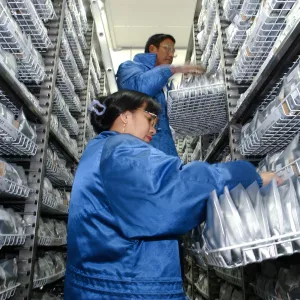Unearthing old rice germplasm, illuminating a new way to improvement
Scientists are delving into molecular genetics to enhance crop yield per unit. This approach hinges on unlocking the potential of favorable gene resources, which lie dormant within the vast collections of germplasms stored in worldwide germplasm banks, akin to a treasure trove awaiting discovery. That being said, only a small fraction of germplasms have been thoroughly examined thus far. This

Unearthing old rice germplasm, illuminating a new way to improvement
Scientists are delving into molecular genetics to enhance crop yield per unit. This approach hinges on unlocking the potential of favorable gene resources, which lie dormant within the vast collections of germplasms stored in worldwide germplasm banks, akin to a treasure trove awaiting discovery. That being said, only a small fraction of germplasms have been thoroughly examined thus far. This study highlights the effectiveness of mining gene resources from germplasm to overcome current yield limitations in crops.
We are on the cusp of a new era, with the global population surpassing 8 billion, and over half relying on rice as their staple food. Despite this growing demand, rice yield per unit has seemingly plateaued for many years. This stagnation raises serious concerns about future global food security, especially considering the shrinking arable land in many countries.
To tackle this challenge, scientists are delving into molecular genetics to enhance crop yield per unit. This approach hinges on unlocking the potential of favorable gene resources, which lie dormant within the vast collections of germplasms stored in worldwide germplasm banks, akin to a treasure trove awaiting discovery.
That being said, only a small fraction of germplasms have been thoroughly examined thus far. Insights into this issue can be gleaned from the study of a particular rice germplasm known as clustered-spikelet rice (CL). CL, with its distinctive clustered growth of multiple grains, played a significant role in constructing the rice chromosome linkage map when genome sequence information was lacking.

